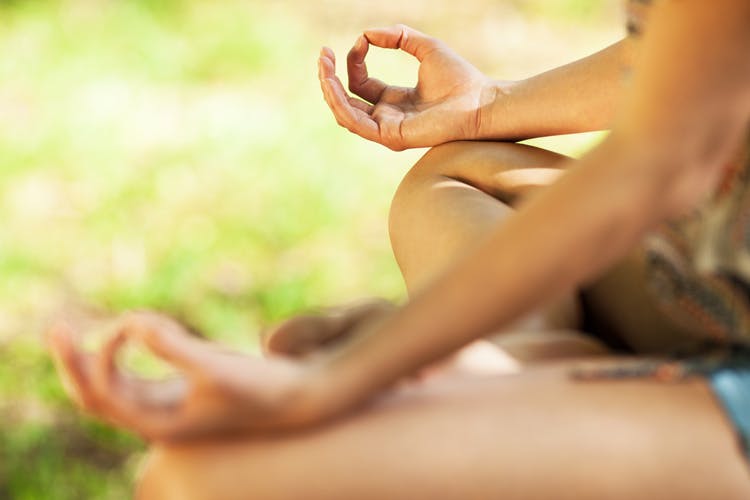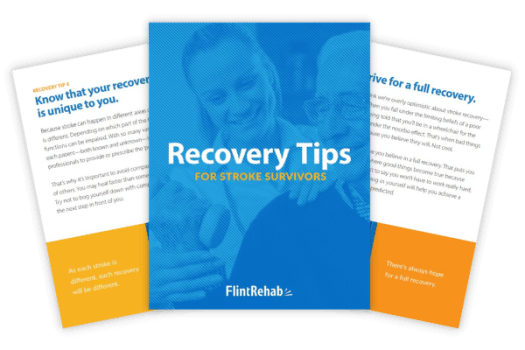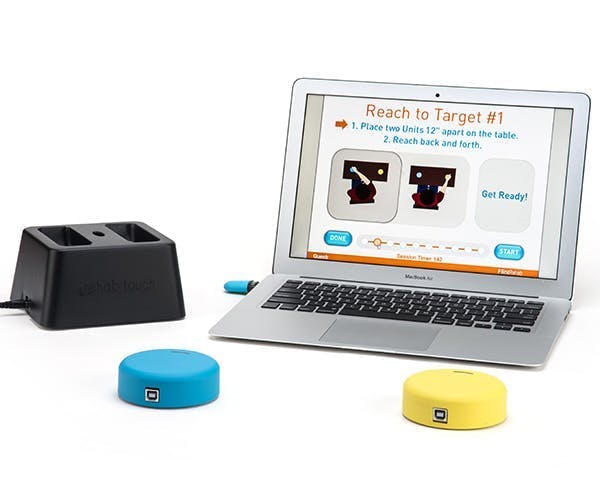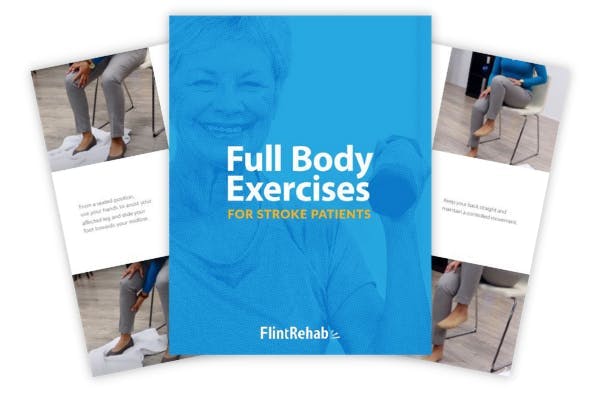No products in the cart.
No products in the cart.
No products in the cart.
No products in the cart.
Home » Neurological Recovery Blog » Stroke » Meditation for Stroke Recovery: A Holistic Approach to Rehabilitation
Last updated on March 2, 2023

A stroke not only affects a survivor’s physical health and function, but also mental or psychological health. Stroke survivors often experience major life changes, including a loss of function and independence. Consequently, survivors may also experience feelings of sadness, grief, frustration, and even anger as they navigate these changes.
For this reason, psychological care after stroke is an incredibly important aspect of recovery. One method that can prove to be beneficial to maximize psychological health and promote stroke recovery is meditation.
The scientifically-proven benefits of meditation for stroke recovery are continuously overlooked, so we will be diving deep into this important topic. In this article we will review how meditation can impact your brain, supporting research, and what other stroke survivors are saying about this helpful, healthy habit.
The road to recovery after stroke is long and comes with many highs and lows. Many survivors experience periods where they feel they are experiencing a plateau or regression in progress, which can be extremely frustrating. This can lead to conditions such post-stroke depression, which affects over 1/3 of stroke survivors. For this reason, meditation could be one of the most rewarding habits you develop.
Daily meditation can be beneficial for stroke recovery as research has shown that it can:
As we discussed earlier in this article, a stroke can be accompanied by a wide variety of secondary effects. This often has a huge impact on a survivor’s daily function and independence. These effects can include weakness or paralysis of one side of the body (hemiparesis or hemiplegia), decreased mobility, reduced sensation, and spasticity. While these effects will require dedicated rehab, meditation can be another valuable adjunct to a stroke recovery program.
A recent study followed 10 stroke survivors who participated in 2 weeks of mindfulness meditation and tracked their progress. What they found was a statistically significant improvement in arm spasticity at the end of the study. Additionally, these survivors reported improvement in overall quality of life due to the participation in meditation practice.
Another incredibly important aspect of stroke recovery that can benefit from meditation is sleep. Many stroke survivors experience changes in sleep quality and sleep schedules, which can have a negative effect on rehabilitation and can slow recovery.
Sleep is your brain’s way of recharging in order to optimize information processing during your waking hours. When this is disrupted due to stroke, individuals can experience increased levels of post-stroke fatigue and other secondary effects like mood swings and decreased concentration.
To combat this, it is best to practice good sleep habits and to incorporate meditation into your routine to boost stroke recovery. Meditation has been proven to increase sleep quality and reduce sleep disturbances. Subsequently, improved sleep patterns can help you make greater gains in function and get the most out of your rehab sessions.
In addition to these benefits, meditation has been shown to reduce cardiovascular risk and may have a positive effect on post-stroke attention. This highlights the value of adding meditation to your daily rehabilitation routine to maximize your progress. Next we will talk about the reason why meditation is an effective stroke recovery strategy.
Regular meditation has been shown to grow the gray matter areas of your brain of your brain responsible for attention, emotion regulation, and mental flexibility. This makes your brain more efficient at processing information in these areas, which is essential for stroke survivors who are working on healing their brain.
The more these skills are practiced, the more growth can be stimulated in these areas. For example, mathematicians have more gray matter in the areas of their brain responsible for arithmetic and spatial reasoning. Similarly, jugglers have more gray matter in the areas of their brain responsible for hand–eye coordination and multitasking.
The healing ability of your brain is all thanks to neuroplasticity, which is how your brain rewires itself. While neuroplasticity is mostly discussed in regard to recovering from brain injury, it’s also the mechanism responsible for learning new skills. When you practice a skill, the neural pathways necessary to perform that skill become stronger.
Your brain will adapt to whatever you focus on and grow accordingly. Therefore, when you practice meditation for stroke recovery, this skill will become more automatic and your brain will experience growth and rewiring of neural pathways.
Meditation has become an increasingly popular topic of conversation within the stroke community, and for good reason. This health practice can improve psychological health by increasing the brain’s gray matter and promoting neuroplasticity. Through this process, meditation for stroke recovery can stimulate gains in attention, emotional regulation, and information processing.
Amy from My Cerebellar Stroke Recovery has a whole category on her blog dedicated to meditation. She regards meditation as one of the most important ingredients for a successful recovery from stroke. Similarly, Dean from Dean’s Stroke Musings also has an entire section for meditation on his blog, which speaks to the importance of meditation for stroke recovery.
Practicing mindfulness and regular meditation are valuable pieces of a holistic approach to stroke recovery. It is important to consider all aspects of health when creating a rehabilitation plan and recovery goals, not just physical functions. We hope this article has helped explain the benefits of meditation for stroke recovery and has encouraged you to prioritize your mental health throughout your rehabilitation journey.

Get our free stroke recovery ebook by signing up below! It contains 15 tips every stroke survivor and caregiver must know. You’ll also receive our weekly Monday newsletter that contains 5 articles on stroke recovery. We will never sell your email address, and we never spam. That we promise.


Do you have these 25 pages of rehab exercises?
Get a free copy of our ebook Full Body Exercises for Stroke Patients. Click here to get instant access.
“My name is Monica Davis but the person who is using the FitMi is my husband, Jerry. I first came across FitMi on Facebook. I pondered it for nearly a year. In that time, he had PT, OT and Speech therapy, as well as vision therapy.
I got a little more serious about ordering the FitMi when that all ended 7 months after his stroke. I wish I hadn’t waited to order it. He enjoys it and it is quite a workout!
He loves it when he levels up and gets WOO HOOs! It is a wonderful product! His stroke has affected his left side. Quick medical attention, therapy and FitMi have helped him tremendously!”
FitMi is like your own personal therapist encouraging you to accomplish the high repetition of exercise needed to improve.
When you beat your high score or unlock a new exercise, FitMi provides a little “woo hoo!” as auditory feedback. It’s oddly satisfying and helps motivate you to keep up the great work.
In Jerry’s photo below, you can see him with the FitMi pucks below his feet for one of the leg exercises:
Many therapists recommend using FitMi at home between outpatient therapy visits and they are amazed by how much faster patients improve when using it.
It’s no surprise why over 14,000 OTs voted for FitMi as “Best of Show” at the annual AOTA conference; and why the #1 rehabilitation hospital in America, Shirley Ryan Ability Lab, uses FitMi with their patients.
This award-winning home therapy device is the perfect way to continue recovery from home. Read more stories and reviews by clicking the button below:
Grab a free rehab exercise ebook!
Sign up to receive a free PDF ebook with recovery exercises for stroke, traumatic brain injury, or spinal cord injury below: